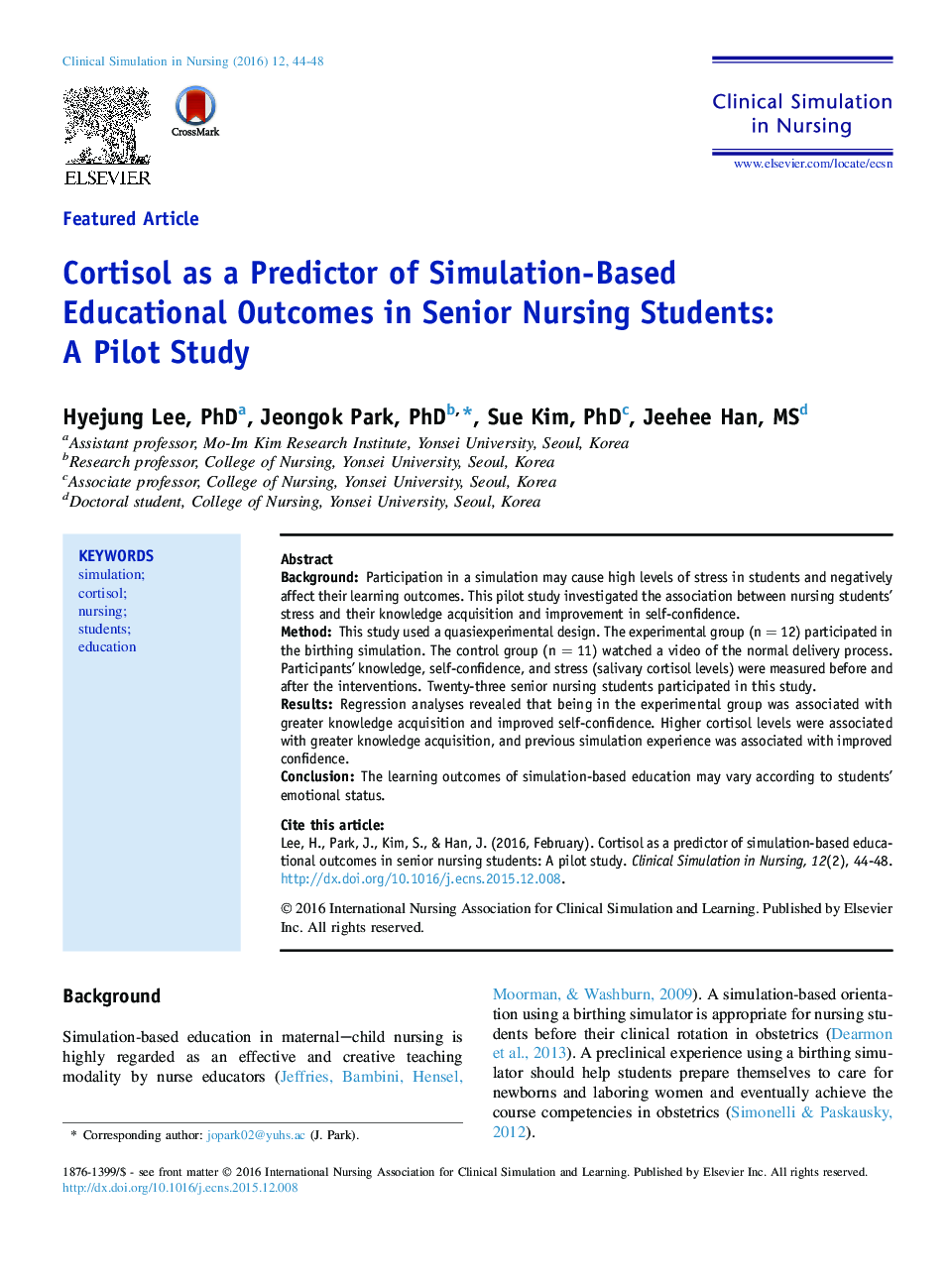| Article ID | Journal | Published Year | Pages | File Type |
|---|---|---|---|---|
| 2645951 | Clinical Simulation in Nursing | 2016 | 5 Pages |
•Simulation-based orientation increased students' knowledge and confidence.•Higher cortisol levels were associated with greater knowledge acquisition.•Previous simulation experience was associated with improved confidence.
BackgroundParticipation in a simulation may cause high levels of stress in students and negatively affect their learning outcomes. This pilot study investigated the association between nursing students' stress and their knowledge acquisition and improvement in self-confidence.MethodThis study used a quasiexperimental design. The experimental group (n = 12) participated in the birthing simulation. The control group (n = 11) watched a video of the normal delivery process. Participants' knowledge, self-confidence, and stress (salivary cortisol levels) were measured before and after the interventions. Twenty-three senior nursing students participated in this study.ResultsRegression analyses revealed that being in the experimental group was associated with greater knowledge acquisition and improved self-confidence. Higher cortisol levels were associated with greater knowledge acquisition, and previous simulation experience was associated with improved confidence.ConclusionThe learning outcomes of simulation-based education may vary according to students' emotional status.
